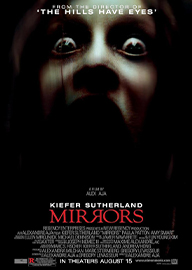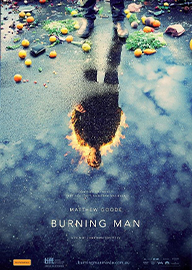An Unfinished Piece for Mechanical Piano
- 7.7
- Drama
- 1977
- 1h 43m
- 14+
A critically acclaimed Russian film directed by Nikita Mikhalkov, based on the works of the famous playwright Anton Chekhov. The film is set in late 19th-century Russia and centers around a gathering of friends and acquaintances at a country estate, where they engage in deep, reflective conversations that reveal their inner struggles and disillusionments with life. Known for its rich character development and poignant exploration of the human condition, the film captures the essence of Chekhov's themes, including the melancholy of unfulfilled dreams and the complexities of human relationships. "An Unfinished Piece for Mechanical Piano" is celebrated for its atmospheric setting, intellectual depth, and its portrayal of the subtle emotional undercurrents that define Chekhov's work.













Comments
0Reviews
0Summery
1Please sign in to comment.
Please sign in to review.
"An Unfinished Piece for Mechanical Piano" is a 1977 Soviet drama film directed by Nikita Mikhalkov. This cinematic adaptation is based on the unfinished play *Platonov* by Anton Chekhov, along with other works by the author, and is a contemplative exploration of the complexities of human relationships, unfulfilled ambitions, and the subtle ironies of life. The film’s poignant narrative, combined with its period-accurate production and nuanced performances, offers a deep reflection on the emotional intricacies of the human experience.
Set in the late 19th century, the story unfolds in the Russian countryside, where a group of aristocrats and intellectuals gather at a summer estate. The film's protagonist, Mikhail Platonov, portrayed by Aleksandr Kalyagin, is a disillusioned schoolteacher who finds himself entangled in a web of romantic and existential dilemmas. Platonov, once a man of great promise and intellect, is now a cynic, burdened by his unfulfilled potential and the monotony of his provincial life. His sharp wit and charm mask a deep sense of dissatisfaction and self-loathing, which is exacerbated by the arrival of his former lover, Sofia, and other characters from his past.
As the guests interact over the course of the weekend, the film delves into the various unspoken tensions and buried emotions that exist among them. Each character is marked by a sense of regret and a longing for the past, reflecting the universal themes of lost dreams and the passage of time. The interactions between the characters are laden with irony, as they navigate their relationships with a mix of nostalgia, bitterness, and resigned acceptance.
One of the central themes of "An Unfinished Piece for Mechanical Piano" is the contrast between the characters' outward appearances and their inner realities. The film portrays a society that is outwardly affluent and cultured but inwardly plagued by ennui and despair. The aristocrats in the film are depicted as living in a world that is increasingly out of touch with reality, clinging to outdated values and social structures that are beginning to crumble. This sense of decay is mirrored in the dilapidated estate where the story takes place, serving as a metaphor for the decline of the old Russian aristocracy.
The film's title, "An Unfinished Piece for Mechanical Piano," is itself symbolic of the incomplete and unresolved nature of the characters' lives. Just as the mechanical piano plays a tune that is never fully realized, the characters in the film are trapped in lives that are marked by missed opportunities and unfulfilled desires. The mechanical piano, a relic of a bygone era, underscores the sense of nostalgia and the passage of time that pervades the film.
Nikita Mikhalkov’s direction is marked by a delicate balance of melancholy and humor, capturing the essence of Chekhov’s work while imbuing it with his own cinematic vision. The film's pacing is deliberately slow, allowing the audience to fully immerse themselves in the characters' emotional landscapes and the richly detailed period setting. The cinematography, with its use of natural light and pastoral landscapes, enhances the film's introspective mood, while the production design meticulously recreates the atmosphere of late 19th-century Russia.
The performances in the film are uniformly excellent, with Aleksandr Kalyagin delivering a standout performance as Platonov. Kalyagin's portrayal of the conflicted protagonist is both subtle and powerful, capturing the character’s complexity and inner turmoil with great skill. The supporting cast, including Yevgeniya Glushenko as Sofia and Elena Solovey as Anna, also provide strong performances that add depth and nuance to the film’s exploration of human relationships.
"An Unfinished Piece for Mechanical Piano" is a film that invites reflection on the human condition, offering no easy answers or resolutions. Its open-ended narrative and complex characters encourage the audience to ponder the themes of unfulfilled potential, the passage of time, and the inevitability of change. The film’s melancholic tone is tempered by moments of humor and irony, making it a rich and layered work that resonates on both an intellectual and emotional level.
In conclusion, "An Unfinished Piece for Mechanical Piano" (1977) is a masterful adaptation of Chekhov's unfinished play, capturing the essence of the original work while adding its own unique cinematic flair. Through its nuanced portrayal of human emotions, its exploration of the passage of time, and its reflection on the complexities of life, the film stands as a significant achievement in Soviet cinema. It remains a poignant and thought-provoking work that continues to resonate with audiences, offering a timeless meditation on the human experience.